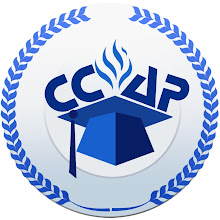By Richard Vedder
David Ward, President of the American Council on Education, and I disagree on a lot of things. Indeed, we had a bit of a public verbal contretemps in the Wall Street Journal last year, with me claiming that massive increases in student assistance programs have aggravated tuition increases, and Dr. Ward arguing to the contrary. He indicated that he is not supporting the recent Spellings Commission report, while I have decided to sign it (although with many reservations).
Yet David personifies much of what universities are supposed to do beyond the mere mechanics of imparting knowledge and skills. He is a decent and tolerant person,a honest chap, a soft-spoken individual who uses evidence and not invective to make a point. Those who argue that colleges have positive "spillover effects" suggest that they help promote decency, tolerance, civility, good humor and a spirit of objective inquiry, even among the non-college educated population. They are thinking of a world of David Wards (However,I agree with many, including Harry Lewis of Harvard College, in believing in fact we are pretty deficient in promoting the positive characteristics mentioned above). If colleges turned out everyone to be like David, we would be better off as a nation. Strangely, based on an interview in the Chronicle of Higher Education recently, I think he feels much the same about me.
Having been uncharacteristically warm and fuzzy for a moment,however, let me make it perfectly clear (as Richard Nixon would have said) that David is a Ward of the State. Even so-called "private" universities today depend very heavily on governments for their well-being. Many problems of higher education, for example sky-high tuition fees are in large part the unintended consequences of a variety of government policies. As the Mandarin of DuPont Circle and titular head of the HEE (higher education establishment), David spends much of his time and effort hustling dollars from governments, warding off (no pun intended) government regulations, etc. Truth and beauty and knowledge necessarily take second fiddle in David's busy schedule to massaging and stroking the Welfare State to suit the goals of higher education.
David is a good and competent man who means well. His goals are noble. But in my humble judgment, he, like so many others, are blissfully unaware of (or, in some cases, indifferent to) the Unintended Consequences of government involvement in academic processes. When you decide to become a prostitute, like all universities (with a few exceptions like Hillsdale College) have, you reap gains in dollars, but you lose other things in the process. It is a debatable question whether the losses or gains are greater --particularly for society as a whole.
Whether I like it or not, the state is going to play a role in higher education. That is another reason, besides personal friendship, that CCAP and I will continue to dialogue with Ward of the State and his allies, hoping to find ways that the negative consequences of state intervention can be minimized, that the spirit of enterprise found in competitive markets can be nurtured in the academy, and that efficient learning can flourish in an atmosphere of true freedom of inquiry.
Subscribe to:
Post Comments (Atom)

No comments:
Post a Comment